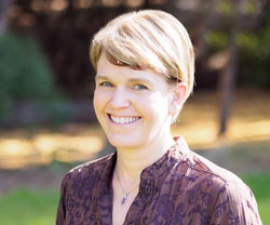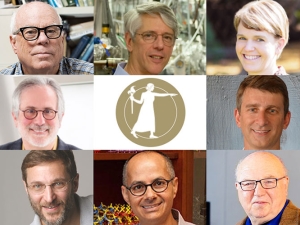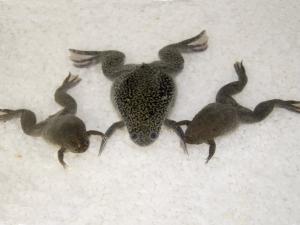

Research Bio
Rebecca Health is the Flora Lamson Hewlett Chair in Biochemistry and a professor of Cell Biology, Development and Physiology. The scientific goal of the Heald Lab is to leverage amphibian systems to elucidate molecular mechanisms of cell division and size control, as well as the contribution of genome size and content to organism physiology. Unique and interdisciplinary approaches take advantage of cytoplasmic extracts prepared from eggs of the frog Xenopus laevis that reconstitute mitotic chromosome condensation and spindle assembly and function in vitro. To study mechanisms of spindle and organelle size control, a smaller, related frog, Xenopus tropicalis, has been used to investigate interspecies scaling, and extracts prepared from fertilized eggs at different stages of embryogenesis to study developmental scaling. This research has provided novel insight into cell division and morphogenesis, processes essential for viability and development, and defective in human diseases such as cancer.
Current Projects
Current projects focus on two major areas of research. The first is to elucidate molecular mechanisms that define the architecture of the spindle and mitotic chromosomes. We are studying how these mechanisms generate the diversity of spindle morphologies observed across cell types, and how their alteration contributes to chromosome segregation defects observed in cancer cells and in inviable hybrid frog embryos. The second area is to examine size control mechanisms at the subcellular, cellular and organism levels. We are investigating how mitotic chromosome size scales with cell size, and leveraging ploidy manipulation and a variety of amphibian species to explore relationships among genome size, cell size, embryonic development, and metabolism. Our research is highly collaborative and provides new insight into principles of mitosis and size scaling, as well as the molecular basis of variation that contributes to genomic instability and evolution. Aside from research, my overarching professional goal is to provide a productive and nurturing environment for my group members and help guide them to the next phase of their careers.
Research Expertise and Interest
cell division, Xenopus, mitotic spindle assembly and function, size control of intracellular structures
In the News
New Fellows of the American Association for the Advancement of Science
Eight Berkeley faculty elected to National Academy of Sciences
With interspecies hybrids, it makes a difference who’s the dad and who’s the mom
Scientists find signals that make cell nucleus blow up like a balloon
The size of a cell's nucleus varies by species, by cell type, and with disease: many cancer cells develop larger nuclei as they become more malignant. Working with the African clawed frog, Professor Rebecca Heald and post-doc Daniel Levy have discovered two proteins that control the size of the nucleus.




